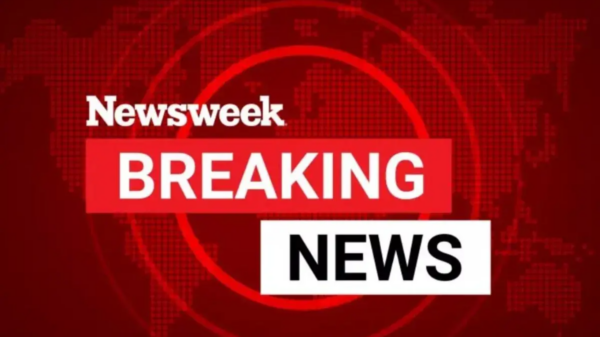UPDATE: U.S. Immigration and Customs Enforcement (ICE) has just announced a dramatic expansion of its detention powers, allowing the agency to jail migrants without bond hearings. Effective immediately, this new directive, revealed by ICE’s acting director Todd Lyons on July 8, 2023, has sparked immediate controversy and raises urgent concerns about the treatment of undocumented individuals in the United States.
Under this policy, ICE can detain anyone who entered the country illegally, bypassing the previously standard bond hearing before an immigration judge. This shift utilizes a 1996 law that had been underutilized, leading to fears of widespread detentions in a system already overwhelmed. The directive was first reported by The Washington Post and has significant implications for the lives of many migrants, including those who have lived in the U.S. for decades.
Homeland Security spokesperson Tricia McLaughlin stated, “The Biden administration dangerously unleashed millions of unvetted illegal aliens into the country,” emphasizing that the new approach is part of a larger strategy to enhance border security. This policy marks a stark shift back to stringent enforcement measures reminiscent of the Trump administration.
Critics of the new policy, including Greg Chen from the American Immigration Lawyers Association, have expressed grave concerns about the lack of judicial review. “This is going to turn the United States into a nation that imprisons people as a matter of course,” Chen warned, highlighting stories from lawyers whose clients have been taken into custody without due process.
The new initiative is expected to significantly increase the number of individuals held in detention facilities, which already housed approximately 56,000 people at the end of June, exceeding budgeted capacity. With new funding aimed at supporting an average daily population of 100,000, critics argue this expansion poses a serious threat to civil liberties and human rights.
Matt Adams, legal director of the Northwest Immigrant Rights Project, condemned the policy for its “draconian interpretation” of immigration laws. He noted that individuals with deep roots in the community—such as those without criminal histories and who have U.S. citizen family members—are now at risk of detention.
The controversial Laken Riley Act, signed in January by Trump, mandates detention for people illegally in the country who are charged with even minor offenses. This law adds another layer to the urgency of the situation, as many fear that even minor infractions could lead to severe repercussions, including extended detention without the possibility of release.
As the situation develops, legal challenges are anticipated. Lyons acknowledged in his memo that ICE’s discretion in detention may face scrutiny and advised attorneys to compile evidence justifying the need for detaining specific individuals.
The ramifications of this policy will be felt nationwide as immigration advocates brace for an influx of detentions. With tensions rising and public outcry expected, the future of immigration enforcement in the U.S. stands at a critical juncture.
As this story unfolds, all eyes will be on the impact of these changes and how they will affect countless lives across the nation. Stay tuned for updates as authorities respond and more details emerge about the implications of this sweeping policy shift.






































































